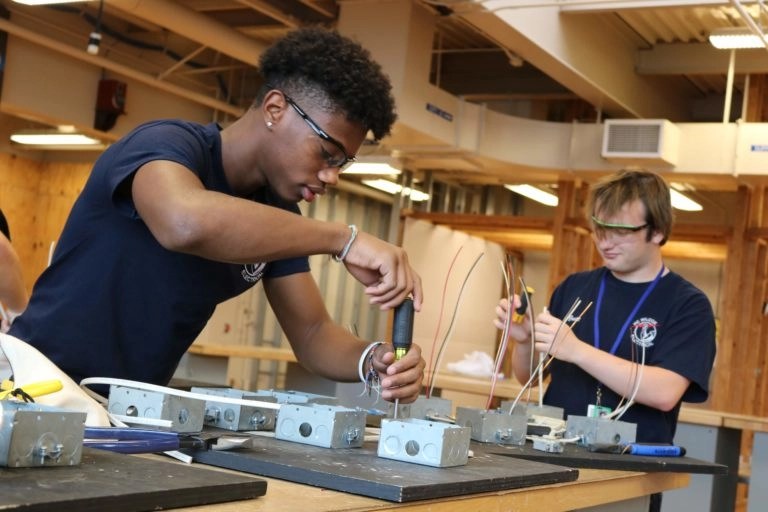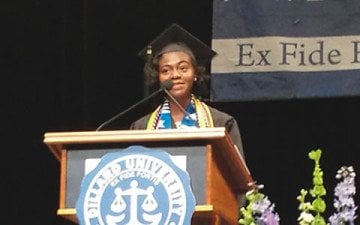
Students’ Performance in WASSCE English, Maths Declined:
A recent report of the last West African Senior School Certificate, WASSCE, showed a decline in students’ performance in English Language and General Mathematics but an improvement in the performance of candidates in Arabic, Igbo, Islamic Studies, and CRK.
This was made known in a communiqué issued at the end of the 57th meeting of the Nigeria Examination Committee (NEC) of the West African Examinations Council (WAEC), by the Public Affairs Officer, WAEC Nigeria, Mr. Yusuf Ari.
Yusuf said: “The Committee noted the observation in the Reports that there was improvement in the performance of candidates in Arabic, Igbo, Islamic Studies, CRK, Government, Music, Visual Art 2, Agric. Science 3, Biology 3, Health Science 1 & 2, Physics 2 & 3, Applied Electricity 1, Metal work 1, Technical Drawing 1 and Woodwork 1 & 3. They noted the report that there was no significant change in French 1c, Hausa, Lit-in-Eng. 2 & 3, Yoruba, Chemistry 3, Physical Education 1, Applied Electricity 2, Electronics 1 and Further Mathematics. Members also noted the report that performance declined in English Language, Economics, Geography 1B, History, Music 2B, Visual Art 1, Agric. Science 2, Biology 2, Chemistry 2, Physical Education 2, Clothing and Textiles 2, Foods & Nutrition 2, Home Management 2, Electronics 2, General Mathematics, Auto Mechanics 2, Building Construction 1 & 2 and Woodwork 3.”
The Committee also strongly expressed concern at the high incidence of malpractice in examinations. “In view of the noticeable increase in the use of programmable calculators by candidates during examinations,” the communiqué read, “in contravention of the rules and regulations guiding the conduct of its examinations, the Committee mandated the Council to introduce WAEC branded, non-programmable calculators, and mathematical sets for use by candidates, with effect from November/December 2014 WASSCE.
Similar Posts:
Some of the strengths of candidates mentioned in the reports included, adherence to rubrics and good interpretation in some subjects, originality in reasoning in others, proper use of terminologies in some subjects, good layout of their responses in others, demonstration of the skills required for performing tasks involving sketches in some subjects, proper organisation of ideas in others, and appreciable mastery of the subject matter in some subjects.”
The Committee also noted the general weaknesses of candidates in various subjects as outlined in the reports.
Illegible handwriting
These included, inadequate preparation and rote memorisation, illegible handwriting, poor choice of questions, failure to answer the required number of questions, vague or irrelevant answers, inadequate division of time between questions, grammar and spelling errors, misinterpretation of the demands of the questions and difficulty in framing their responses due to poor command of the English Language.
Other weaknesses of candidates mentioned in the reports included: inability to marshal their points and answers to questions that required detailed explanations, inability to spell technical words correctly, poor graphical analysis and poor quality diagrams, inadequate exposure to laboratory work coupled with inability to perform Mathematical operations correctly.
Others included inability to take measurements properly and state their units correctly, inability to present answers to the required degree of accuracy and inadequate familiarity with the set texts which explains the sketchy answers given to some questions.
In the light of the above challenges, the WAEC Nigeria committee provided some solutions and called on stakeholders to: Make effort to improve upon their understanding and use of the English Language in order to appreciate the requirements of the questions and make their responses appropriate and coherent; strive to cover the syllabuses for the subjects they wish to sit before the commencement of examinations; make greater use of online resources and read the prescribed texts in the various subjects rather than depend solely on commentaries; read the questions and rubrics, carefully focusing on the task to ensure that they understand the meaning of the key words in the questions before attempting them.
Mathematical computations
The committee also called on students to practice answering questions from past papers under timed conditions as it demystifies examinations and helps candidates to be focused; developing the necessary knowledge and skills for averting the pitfalls; learn how to plan their responses and manage the time allocated to the examination papers efficiently; learn the basic principles and concepts in the various subjects and apply them to solving simple everyday problems; engage in practical activities and improve on their skills in basic mathematical computation, drawing and labelling of diagrams; ensure that terms and definitions associated with the various subjects are correctly understood; and endeavour to write legibly and ensure that their work is clearly laid out.
WAEC Nigeria also expressed deep concern that Nigerian candidates had won very few of the international awards being given under the aegis of the WAEC Endowment Fund, for outstanding performance in the Council’s examinations in recent years. The unimpressive performance of Nigerian candidates at the sub-regional level, the Committee believed, was due to lack of essential inputs, human, material and otherwise – required to drive a sound educational system and the lack of continuity in the system.
The Committee implored the federal and state governments, as well as other stakeholders in the education sector to articulate policies and programmes which would help improve the standard of education in the country.
These include the provision of appropriate manpower, adequate infrastructure and teaching aids, which would facilitate proper teaching and learning so as to adequately prepare secondary school of students for WAEC examinations.
Source: Vanguard



